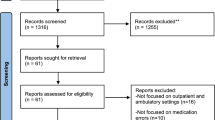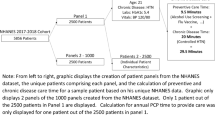Abstract
Medical practice must adapt to changes in the nature of diseases and population demographics. The need to prepare doctors-in-training to manage chronic disease is assuming increasing importance as the prevalence of such diseases rise throughout the world.
Medical education has traditionally lagged behind changes in clinical practice. Recent advances in medical education include the development of problem-based approaches and the teaching of evidence-based medicine. Medical training, however, continues to focus on the treatment of acute illness in a younger population. This focus potentially perpetuates problems in knowledge translation, the transfer of clinical knowledge into clinical practice. There is an urgent need to refocus medical training on conditions of greater relevance and prevalence, and to prepare medical graduates for the challenges of chronic disease management. In particular, students need to be given the skills to integrate knowledge across disciplines and to work as part of an interdisciplinary team. Adapting medical training to address chronic disease management must be the new priority in medical education.
Similar content being viewed by others
References
Dienstag JL. Relevance and rigor in premedical education. N Engl J Med 2008 Jul 17; 359 (3): 221–4
DMAA. DMAA definition of disease management [online]. Available from URL: http://www.dmaa.org/dm_definition.asp [Accessed 2008 Nov 20]
Album D, Westin S. Do diseases have a prestige hierarchy? A survey among physicians and medical students. Soc Sci Med 2008 Jan; 66 (1): 182–8
WHO. Cardiovascular diseases: fact sheet no. 317: February 2007 [online]. Available from URL: http:// www.who.int/mediacentre/factsheets/fs317/en/index.html [Accessed 2008 Nov 20]
WHO. Chronic obstructive pulmonary disease (COPD): fact sheet no. 315: May 2008 [online]. Available from URL: http://www.who.int/mediacentre/factsheets/ fs315/en/index.html [Accessed 2008 Nov 20]
Peeters A, Barendregt JJ, Willekens F, et al. Obesity in adulthood and its consequences for life expectancy: a life-table analysis. Ann Intern Med 2003 Jan 7; 138 (1): 24–32
WHO. Diabetes: fact sheet no. 312: September 2006 [online]. Available from URL: http://www.who.int/mediacentre/factsheets/fs312/en/index.html [Accessed 2008 Nov 20]
International Diabetes Federation. Prevalence [online]. Available from URL: http://www.eatlas.idf.org/Prevalence/ [Accessed 2008 Nov 20]
Druss BG, Marcus SC, Olfson M, et al. Comparing the national economic burden of five chronic conditions. Health Aff (Millwood) 2001; 20 (6): 233–41
Davis D, Evans M, Jadad A, et al. The case for knowledge translation: shortening the journey from evidence to effect. BMJ 2003 Jul 5; 327 (7405): 33–5
Hill SR, Henry DD, Smith AJ. Rising prescription drug costs: whose responsibility? Med J Aust 1997; 167: 6–7
Nair BR, Perkins J, Sanson-Fisher R. Multidisciplinary learning: a unit in Newcastle, Australia. Focus Health Prof Educ 2000; 2 (2): 53–8
Coory MD. Ageing and healthcare costs in Australia: a case of policy-based evidence? Med J Aust 2004; 180 (11): 581–3
Finucane P, Nair BR. Is there a problem with the problems in problem-based learning? Med Educ 2002; 36: 279–81
Edwards M. Modern medicine and the pursuit of care. Med Educ 1999; 33: 704–6
Howe A, Billingham K, Walters C. Helping tomorrow’s doctors to gain a population health perspective: good news for community stakeholders. Med Educ 2002; 36: 867–75
Povea-Pacci H, Nair BK, Sanson-Fisher R, et al. Teaching of equity in an undergraduate medical curriculum: change imposed and desired. Proceedings of the Australasian and New Zealand Association for Medical Education; 2002 Jul 5–8; Sydney
Nair BR, Finucane P. Reforming medical education to enhance the management of chronic disease. Med J Aust 2003; 179: 257–9
Rubenstein LZ, Werland D, Pearlman RA, et al. Growth of the teaching nursing home: the Veterans Administration experience. J Am Geriatr Soc 1990; 38: 72–8
Hatala R, Guyatt G. Evaluating the teaching of evidence-based medicine. JAMA 2002 Sep 4; 288 (9): 1110–2
Acknowledgements
No sources of funding were used to assist in the preparation of this article. The authors have no conflicts of interest that are directly relevant to the content of this article.
Author information
Authors and Affiliations
Corresponding author
Rights and permissions
About this article
Cite this article
Nair, B.R., Browne, W. Chronic Disease Management. Pharm Med 22, 351–354 (2008). https://doi.org/10.1007/BF03256731
Published:
Issue Date:
DOI: https://doi.org/10.1007/BF03256731




